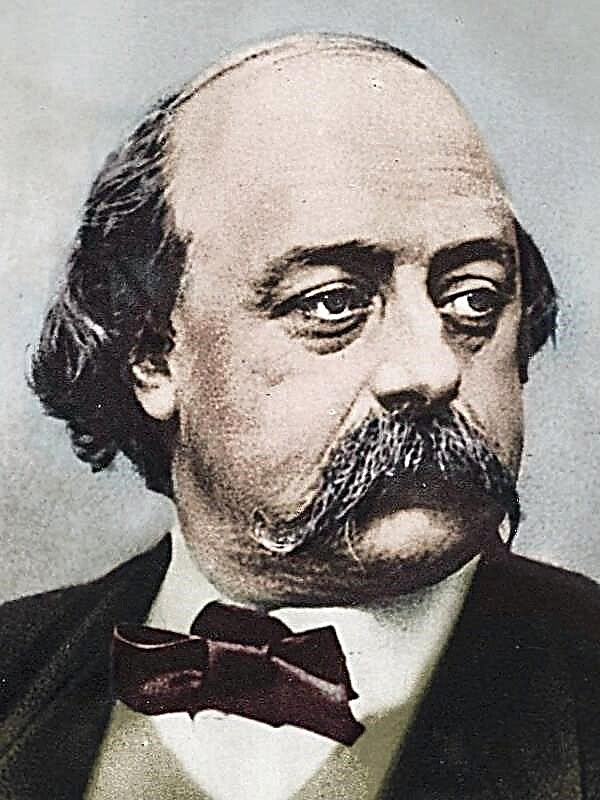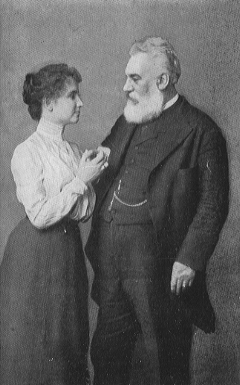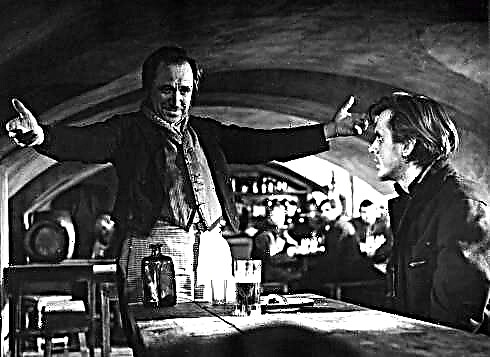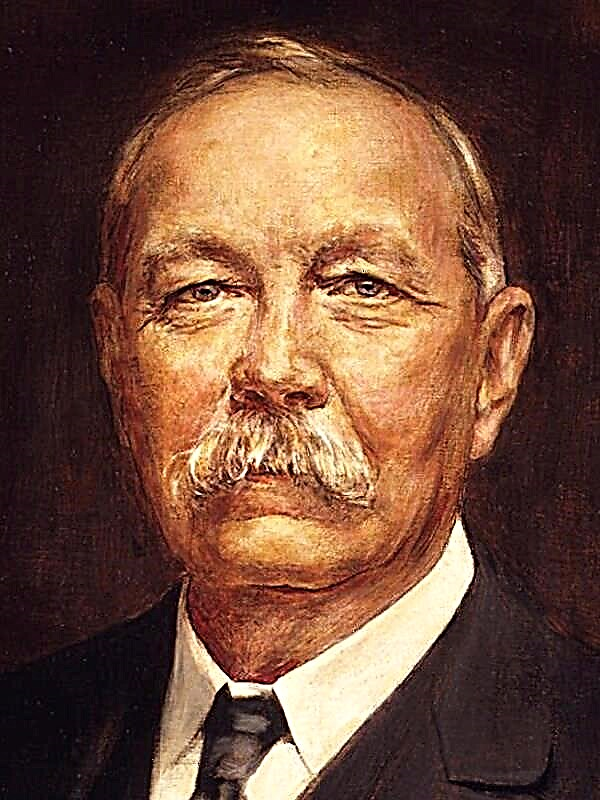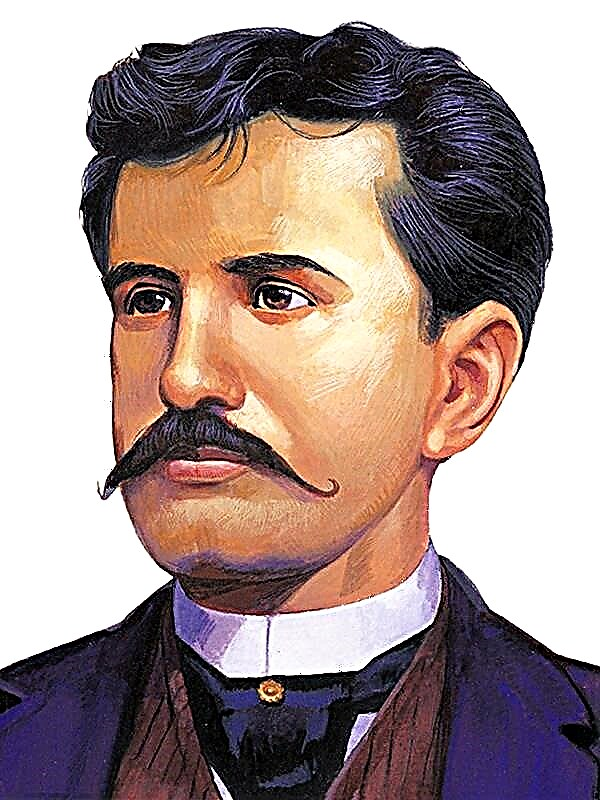Despite the fact that Longren, the father of Assol, has a secondary role in Green's story “Scarlet Sails,” it is important enough to understand the whole picture and has its own separate meaning and theme worthy of discussion. The story of this hero tells us how hard the poor live in conditions where everyone is for himself.
The Longren family lives in the small coastal town of Caperna. He himself works as a sailor on a three hundred-ton brig. He goes on long voyages for several weeks, leaving his wife and little newborn daughter. Once he returns home and sees in his house not his wife, but his neighbor, who tells him the tragic news - his wife died. After the difficult birth of their only daughter, she still cannot recover, she comes back for a long time and is often sick. The family lacks funds that are constantly spent on treatment, as well as the upbringing of little Assol. Mary, that was the name of Longren's wife, decides to ask for money from the local wealthy Menners, the owner of the shop and the inn, but he agrees to give her money in exchange for sexual services. This offends the woman and she refuses to accept any help from the innkeeper. She had no choice but to walk to the neighboring city of Lysa to lay her wedding ring in the pawnshop - the only valuable thing in the house. The weather was bad enough, it was raining, a piercing wind was blowing, and Mary after such a trip gets sick with bilateral pneumonia, which becomes the last straw in a long series of her illnesses.
After such shocking news, the widower Longren decides to leave service on the ship after 10 years of sailing in order to take care of her newborn daughter, who was left without a mother at such an early age. A neighbor moves to Longren's house to help take care of Assol. Gray describes the widower's condition as deeply sad and confined. Before the death of his wife, he was already uncommunicative by nature, but after her death he became completely withdrawn and unsociable.
To have at least some kind of income, Longren begins to make boats and boats from wood, and then sell them in the city. When Assol was about five, one significant event took place with him, which finally cut him off from the inhabitants of the town and laid an unpleasant shadow on his daughter. Longren was very fond of walking along the seashore in bad weather. He often went away for so long, walked, looked into the distance and smoked a pipe. Once a real storm happened in the sea and Longren witnessed how Menners, the same innkeeper who refused to help his wife, accidentally began to take to the sea in a small boat. Menners called him, asked for help and Longren heard these screams, but did not help. He only reminded the cruel innkeeper that once Mary had also prayed for his help, but he was cold to her pleas. The rich man was carried to the sea.
After six days, Menners in a dying state still finds a passing ship and returns to the village. Embittered and hungry for revenge, he talks about the act to the inhabitants of Caperna, setting the whole village against him. People begin to bypass him, dissolve gossip and boycott. Assol also comes under attack - other children cease to communicate with her, despite all her attempts to make friends, the girl remains alone.
After a significant meeting between Assol and the wizard and song collector Egle, who told her her story about scarlet sails, Longren did not upset the dreamy girl and tell her the truth that this story was not a prediction, but pure fiction. Sincerely loving his daughter, he wanted to at least somehow brighten her lonely life and therefore said that everything would happen exactly as the wizard described. In his heart, he hoped that over time, Assol would switch to something else and forget about this story. But the story stuck to the girl, every day she was waiting for her ship with red sails.
Seven years passed and toy boats and ships ceased to bring sufficient income to Longren. He spends days desperate to get out of poverty, which is driven by circumstances. A sailor goes to sea at night on a boat to think. Water helps him, he swims without a specific route and direction, just wanders into the sea. Longren understands that he has no other choice but to return to work on the ship; he again goes on distant voyages for several weeks. But he is afraid to leave Assol alone, because the story with the innkeeper has not yet been forgotten and the villagers are embittered at him. But nevertheless, he decides to enter the service on the mail ship and is going to inform his daughter about this news upon his return.
However, when he returns, Assol is not at home. He knows about her morning walks, but still some kind of inner anxiety does not let him calm down and he literally finds no place for himself until he sees Assol at the door of their house. She returns happy and radiant, and he is very surprised at the change in her mood. The radiant smile on his daughter’s face worries him even more than before, and then Assol tries to make his face as serious as possible, however, it turns out badly to hide her emotions. Logren informs her of his decision to return to service on the ship. Leaving home, he orders her to stay at home and in case of danger to say that he is about to return. But Longren never has time to sail to work. On the same day, a ship with red sails, for which there is a place for him, sets sail for Assol.
Thus, on the example of the story of Father Assol, we see the story of a poor man who was rejected by society, from which all the inhabitants of the community in which he had to turn his back turned. People condemned his act, but he remained unconvinced and did not break, did not fall into despair, but continued to work and fight for life. It was loneliness and alienation that made him who he was. Maybe that’s why the villagers ignored him and were afraid, because they realized that a single rebellion is much worse than a collective rebellion.

